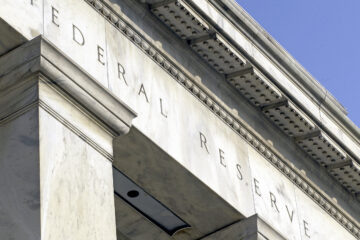US
The Thanksgiving holiday was accompanied by record highs on Wall Street: a beat in US GDP growth and – this never gets old – positive comments from President Donald’s Trump about a closing on the final stages with a partial trade deal with China lead to a bullish sentiment. The US economy grew at an annualized rate of 2.1% in the third quarter, which beat market consensus standing at 1.9%. Further, the US international trade deficit narrowed unexpectedly, standing at 17-month low in October. However, this should not be interpreted in a positive manner, since it was driven by weak imports and not by strong exports. Among other reasons for such a development, the main driver was the so often bespoken trade war between China and the US. Following the signing into law of a bill supporting the protestors in Hong Kong on Wednesday, which drew rebuke from mainland China and thus made it very unrealistic of a phase one trade deal to be signed this year, the shortened trading day in the US on Friday was set for a slight pull back. The Dow Jones gained on the week almost 1%, standing at 28,051, in line with the S&P 500, closing at 3,140 points. Small caps experienced a stronger performance in the US. The Russell 2000 Index gained more than 2% on the week, closing at 1,624 points. The Russell 2000 Index thus joined its blue chips counterparts and reaching a new record high this past week. At the same time, the correlation among the individual constituents of the index fell to a record low. This could highlight a sentiment where the market is not driven by macro-economic themes but more by idiosyncratic factors and could be read as a bullish sign. 10 year US treasury notes notched up by one basis points to 1.78% compared to last weeks standing, while more movements took place at the short end of the yield curve, with one month treasury notes rising by 7 basis points to 1.65% over the past week.
Europe
The EUR/USD fell on Friday below the USD 1.10 threshold to recover in the afternoon trading session to close at 1.102. The drop was triggered by the harmonized annual inflation in the eurozone rising to 1% for November which beat market sentiment. Unemployment well to 7.5% in October for the bloc, which is a reduction against 7.6% for the previous month. In addition, sentiment among consumers and retailers appeared stronger. But Fitch Ratings reminded the eurozone economy of its problem, by saying it’s at risk of „Japinification“ which describes a cycle of low deflation, low growth and high debt levels. The Euro Stoxx 50 advanced 0.5% over the week to close at 3,703 points. 10-year German Bunds were flat over the week, yielding -0.37%.
UK
Sterling edged higher against the Dollar, closing at USD/GBP 0.7735 on Friday. The closely watched YouGov poll indicated that U.K. Prime Minister Boris Johnson’s Conservatives may secure a majority in the upcoming general elections on Dec. 12. The YouGov poll gets a lot of attention because it was the only poll to predict correctly a hung parliament and a loss of seats for the Tories in the 2017 elections. Investors perceive such an outcome in line with the YouGov poll as positive and could open investments into the UK. The FTSE 100 gave up its gains over the week to close at 7,346 fairly unchanged to the week before. In contrast, the FTSE 250 advanced 1.3% over the week, reflecting the fact that smaller companies are more affected by domestic factors. UK treasury yields came down across the yield curve, with 10 year UK notes yielding 0.58% and thus 2 basis points less than the week before.
Rest of World
The Shanghai SE Composite closed the week unchanged at 2,871 after giving up gains on Thursday and Friday with China reiterating threats of retaliation after Donald’s Trump’s „interference“ in the protest in Hong Kong. After jumping 1.5% on Monday as a reaction to the local council elections in Hong Kong, the Hang Seng Index lost 2% on Friday to close at 26,346 points. Brent crude oil dropped 0.7% on Friday to close at $63.4 while Gold added 0.1% to $1,462 per ounce. Among the biggest losers in commodities was Natural Gas. The month of November was one of declining prices for Natural Gas, coming down from a high at $2.87 on November 11th to close at $2.31 on Friday (CME-NYMEX) – thus losing 13% on the week.



0 Comments